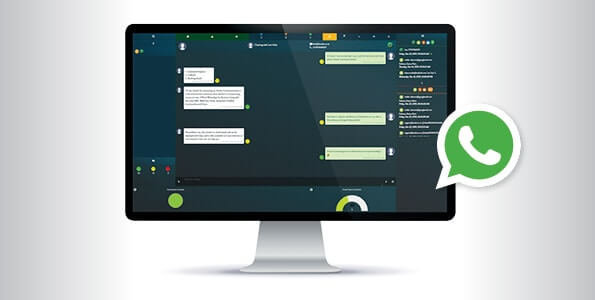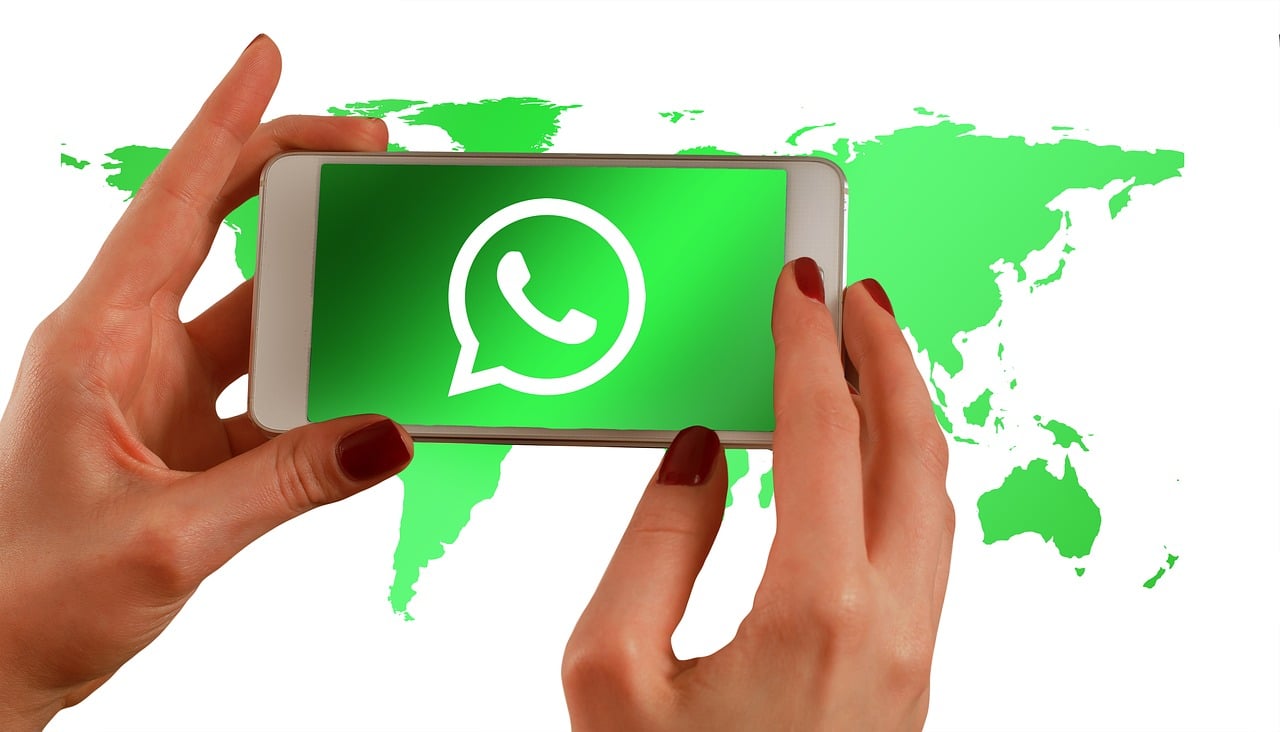A Powerful Channel for Contact Centres
We all know that mobile phones were originally invented to enable Voice calls that could be made and received on the go, and not just through a fixed land line. And so it’s ironic that we’re seeing an increasing trend in recent years for consumers to use their smart phones for text-based communication more than for Voice calls. This pattern brings ramifications for businesses as well as individuals.
The ‘texting versus calling’ trend is highly visible in private conversations as well as in the communication preferences that people have with businesses, including contact centres.
WhatsApp has become one of the world’s most popular and widely used text-based apps, and its features and popularity bring significant benefits to contact centres also – so much so that WhatsApp has, in fact, become one of the most powerful channels for contact centre usage today. Let’s unpack this further, starting with insights on why texting itself can be so useful.

Don’t Call Me (Send Me a Text)
Texting provides a quick and efficient way to communicate. There’s no need for pleasantries or small talk (especially if you’re not in the mood!) – you can simply get straight to the point. In a world where time is a precious commodity, many people see this as an advantage, especially when they’re busy or under stress.
Some of the advantages of texting include the following:
- Great for multi-tasking: Texting allows people to communicate during brief free moments, including in the ‘asynchronous’ timing of messages (where both the sender and the recipient of the message don’t have to be in ‘chat mode’ at exactly the same time). For example, you can send a text message just before setting off on a trip to work and then read the response when you’ve arrived at the office, or you could send a text while waiting for your computer to finish a series of planned updates. The important thing is that you can text at a time that works for you.
- Texting is easy: Even members of an older generation understand how to text on their smartphones, and it’s easier than a Voice call for anyone who is hearing impaired. For those who are introverts, or living in a country where the primary business language isn’t their first language, texting can be easier than trying to speak on the phone.
- Efficiency of use: Texting allows us to get straight to the point – we ask a direct question, get a straightforward answer, and carry on with our schedule.
- Written record: In addition, text messages remain with you and can be referred back to for further information or confirmation, if required.
- Unintrusive communications: You don’t need to interrupt whatever you’re doing to immediately read or answer a message – you can do it at your convenience (at least most of the time). A phone call, on the other hand, requires real-time (‘synchronous’) communication at a time when it may not suit both parties to make or receive a call.
- Synched to your computer: As an additional advantage, WhatsApp’s useful functionality also allows you to synch your smartphone to your laptop or desktop computer, so you can have the additional convenience of sending text messages via a device with a bigger keyboard, which for some people is more convenient.
So much for the advantages of being able to text your messages. Among the many communication channels available, WhatsApp has emerged as a gamechanger.
WhatsApp: Powering Ahead in Popularity and Availability
With over 2 billion active users globally, WhatsApp has become an incredibly popular and important platform within the digital communications landscape. Originally designed as a simple messaging app, it’s now a critical tool for contact centres, providing superb accessibility and efficiency, and enhancing customer engagement.
WhatsApp’s usage in contact centres has been a logical business extension because it’s versatile, widely available as well as extensively used, and able to deliver seamless, personalised experiences at scale.
Here are some thought-provoking statistics:
- 96% of South Africans use WhatsApp.
- Globally, 68% of users check WhatsApp daily, indicating high engagement.
- Over 175 million people message a WhatsApp Business account every day.
For contact centres, this means a ready-made audience that prefers the platform for its convenience and immediacy.
Benefits for Contact Centres
Using WhatsApp can benefit contact centres in several different ways, including accessibility, real-time conversations, a variety of media formats and cost-efficiency.
- Accessibility: WhatsApp’s widespread usage ensures that businesses can reach customers almost anywhere. Unlike voice or email, which require specific setups, WhatsApp operates on a platform most customers already use on a daily basis.
- Real-time conversations: The platform supports fast and efficient interactions for resolving customer queries, sending notifications and collecting feedback.
- Rich media capabilities: WhatsApp supports a variety of media formats, including text, images, videos, documents and voice notes. This versatility allows businesses to share detailed information, demonstrate solutions visually, and provide instructions.
- Cost efficiency: Compared to Voice or SMS channels, WhatsApp offers a more affordable solution for high-volume interactions. Businesses can save costs while maintaining high levels of service.
- Track chat history: WhatsApp keeps track of all customer interactions, providing a complete view of the user journey. This ensures continuity and context, allowing for multiple agents to seamlessly assist customers.
- Single place of interaction: Integrating WhatsApp into the contact centre software allows agents to manage all customer communications from one platform, streamlining workflows and improving response times.
- Automation: WhatsApp can be integrated with chatbots to handle common queries, freeing up human agents to handle more complex issues.
Smartz Solutions: Integrating WhatsApp into Your Customer Journey

Vox has proudly partnered with Smartz Solutions, which has been at the forefront of enabling businesses to embrace WhatsApp as part of its omnichannel communication strategy.
By seamlessly integrating WhatsApp with other channels like Voice, email and web chat, SmartzSolutions empowers contact centres to offer customers increased flexibility, helping businesses in the following ways:
- Rapid Deployment: The company has a proven track record of being able to deploy a WhatsApp bot in under 24 hours, handling unprecedented interaction volumes effortlessly.
- Seamless Integration: SmartzSolutions ensures that WhatsApp is part of a cohesive omnichannel strategy so that every interaction, regardless of channel, contributes to a unified customer experience.
- Sentiment Analysis and Personalisation: By integrating sentiment analysis, the company helps businesses to tailor their WhatsApp interactions, ensuring they resonate with a customer’s unique needs and emotions.
Voice and WhatsApp: Coexisting for the Ultimate Solution
It’s important to remember that, while WhatsApp is revolutionising customer communication, Voice will always have a critical place in the contact centre. In particular, we find that urgent, complex or emotionally charged issues often require a human touch, and Voice channels remain the most effective way to provide that – there’s nothing like speaking voice to voice to a sympathetic person over the phone when someone has an issue or challenge.
The future for contact centres lies in balancing these channels, allowing customers to choose the method that best suits their needs at a particular time. WhatsApp can handle routine queries and initial touchpoints, while Voice agents step in for more complex interactions. Together, they form a complementary strategy that maximises efficiency and satisfaction.

















